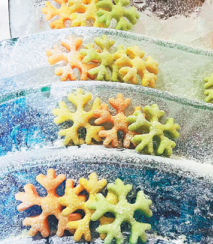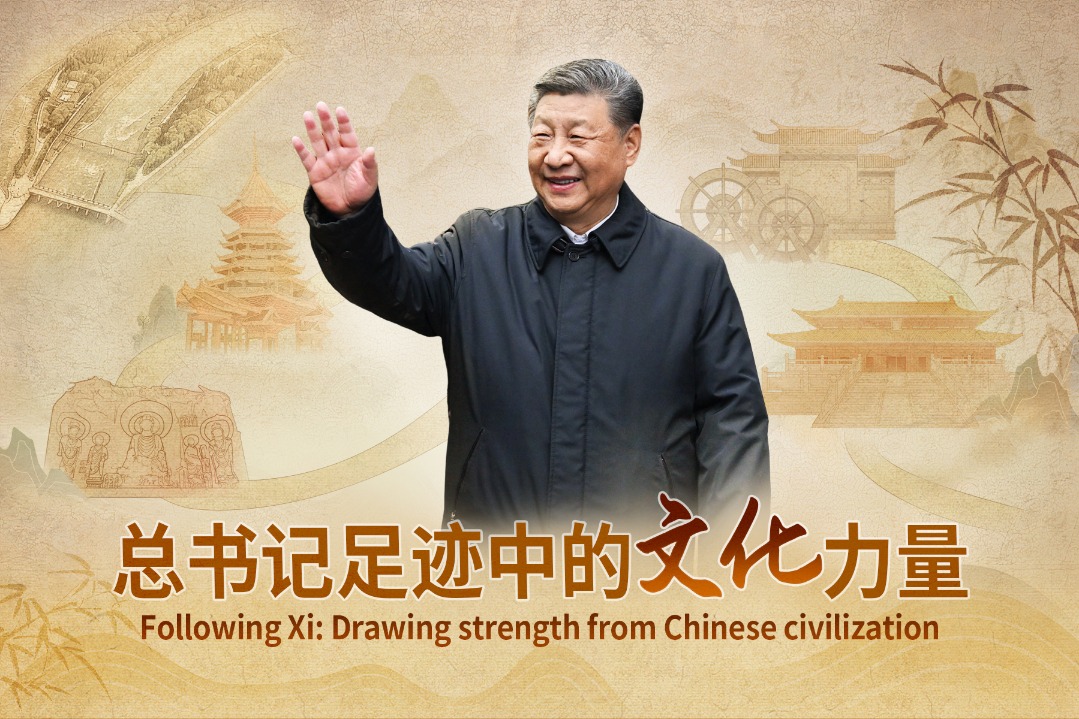Restaurants put Olympic delights on the menu

There's nothing like munching on Olympic-themed foods while watching global athletes go for gold.
Many restaurants in Beijing, the host city of the ongoing Winter Olympics, are offering dishes in the shapes of sports symbols as a way to celebrate the event.
The famed roast duck is a hot gold medal contender for the most popular food in Beijing. To add some Olympic flair to its main course, Quanjude, a century-old roast duck restaurant, has stacked its sliced yellow duck meat in a torch shape on the plate. For customers who have a sweet tooth, it has made a "snow mountain" of yams and cream, with two skier-shaped chocolate bars on it.
"Good sport-themed dishes should be realistic in shape and give customers an association, which test the skills and ingenuity of chefs," says Zhang Gang, deputy head chef of the restaurant's Olympic Village branch.
Also, the Tongheju restaurant has rolled out five special recipes, including pancakes that look like the Olympic Rings. Instead of using food coloring, the chefs have added blueberry powder, sugar beet, squid ink and spinach powder for the blue, red, black and green rings. The pastry has been a colorful snack that is healthy enough for athletes to enjoy.
Other restaurants have joined the trend with their own offerings, shaped like ice hockey pucks, curling stones, the Olympic mascots and iconic venues, attracting wide media coverage.
"The dishes are so cute, and I want to try cooking them at home," a netizen remarks on Dazhongdianping, a customer review app.
The Olympic fever has already inspired amateur chefs who flock to social media to post pictures of their homemade dishes, such as the Olympic Rings made of fresh fruit and the panda mascot-shaped tangyuan, sweet rice dumplings usually eaten on Lantern Festival.
A report released by the Ministry of Culture and Tourism predicts that this winter will see 305 million visits to ice-and-snow leisure and tourist services, with revenues expected to exceed 320 billion yuan ($50.61 billion).
Bai Yufei, a professor at the Beijing Sport University, says ice-and-snow activities have energized the tourism market in winter, a traditional offseason.
The industry around ice-and-snow activities in China is in its prime, Bai says, adding that it will become a new driver of domestic demand and contribute to China's interactions with the rest of the world.
Xinhua

Today's Top News
- Poll findings indicate Taiwan people's 'strong dissatisfaction' with DPP authorities
- Xi emphasizes strong start for 15th Five-Year Plan period
- PLA drills a stern warning to 'Taiwan independence' separatist forces, external interference: spokesperson
- Xi, Putin exchange New Year greetings
- ROK leader's visit to help boost bilateral ties
- China's new plan, world's new opportunities






























